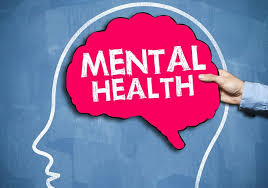
Heart-Related Hospitalisation Linked to Increased Risk of Mental Health Issues, Study Finds
A recent study highlights the significant mental health impact of being hospitalized for heart-related conditions. Published on July 31 in the Journal of the American Heart Association, the research reveals that individuals who experience a heart attack, stroke, or other heart issues are 83% more likely to be diagnosed with a psychiatric disorder within the following year.
The study, led by Dr. Huan Song from Sichuan University's West China Biomedical Big Data Center, also found that the risk persists long-term. Nearly eight years after hospitalization, individuals remained 24% more likely to face mental health challenges.
Dr. Song emphasized the importance of monitoring mental health during recovery. "If you or a loved one has been hospitalized for heart disease, be aware that mental health issues may arise," he said. "It’s important to watch for signs of anxiety, depression, or suicidal thoughts, as these challenges are common and treatable."
Researchers analyzed the health records of approximately 64,000 British adults hospitalized for heart conditions between 1997 and 2020, comparing them with 128,000 matched individuals without heart problems. Results showed that heart patients had nearly double the rate of mental health diagnoses in the first year post-hospitalization compared to those without heart issues.
The study found that strokes, in particular, significantly increased the risk of psychiatric disorders, more than tripling the likelihood of such issues or suicide attempts within the first year. Even after one year, the risk remained 49% higher for stroke patients.
Dr. Mariell Jessup, chief science and medical officer of the American Heart Association, stressed the need for mental health screening and early intervention. "Patients are at increased risk for mental health conditions after a cardiovascular diagnosis or hospitalization," she said. "It's crucial for patients, family members, and caregivers to communicate any changes that may signal depression, anxiety, or suicidal behaviors to the healthcare team."
Dr. Song advised those in mental distress to seek immediate help through the 988 Suicide and Crisis Lifeline or visit an emergency room. He also encouraged patients to openly discuss any mental health concerns with their healthcare providers. "Patients should inform their doctors about any mental health symptoms so that they can receive appropriate support or be referred to a mental health specialist," Song added.